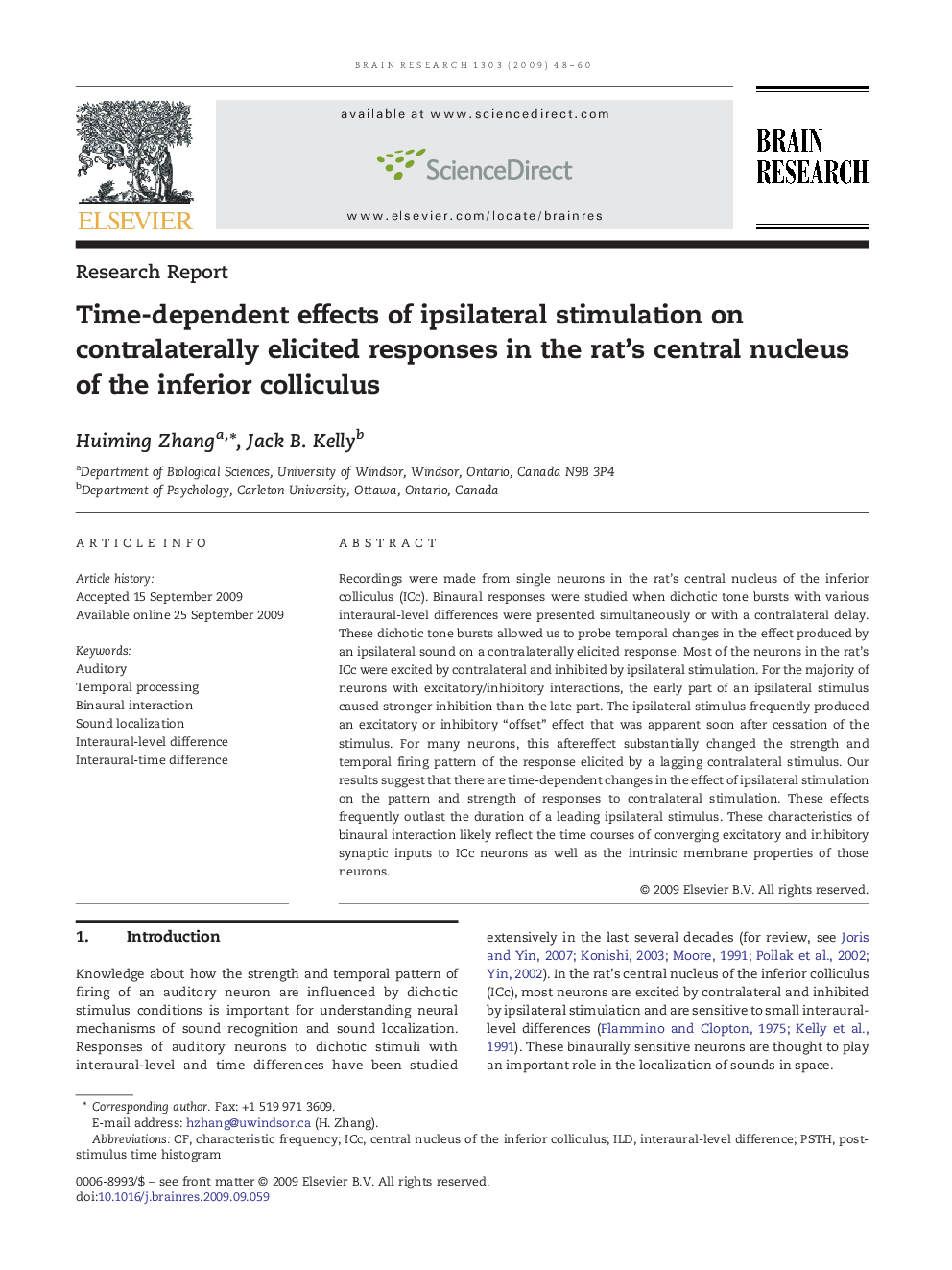| Article ID | Journal | Published Year | Pages | File Type |
|---|---|---|---|---|
| 6265530 | Brain Research | 2009 | 13 Pages |
Recordings were made from single neurons in the rat's central nucleus of the inferior colliculus (ICc). Binaural responses were studied when dichotic tone bursts with various interaural-level differences were presented simultaneously or with a contralateral delay. These dichotic tone bursts allowed us to probe temporal changes in the effect produced by an ipsilateral sound on a contralaterally elicited response. Most of the neurons in the rat's ICc were excited by contralateral and inhibited by ipsilateral stimulation. For the majority of neurons with excitatory/inhibitory interactions, the early part of an ipsilateral stimulus caused stronger inhibition than the late part. The ipsilateral stimulus frequently produced an excitatory or inhibitory “offset” effect that was apparent soon after cessation of the stimulus. For many neurons, this aftereffect substantially changed the strength and temporal firing pattern of the response elicited by a lagging contralateral stimulus. Our results suggest that there are time-dependent changes in the effect of ipsilateral stimulation on the pattern and strength of responses to contralateral stimulation. These effects frequently outlast the duration of a leading ipsilateral stimulus. These characteristics of binaural interaction likely reflect the time courses of converging excitatory and inhibitory synaptic inputs to ICc neurons as well as the intrinsic membrane properties of those neurons.
